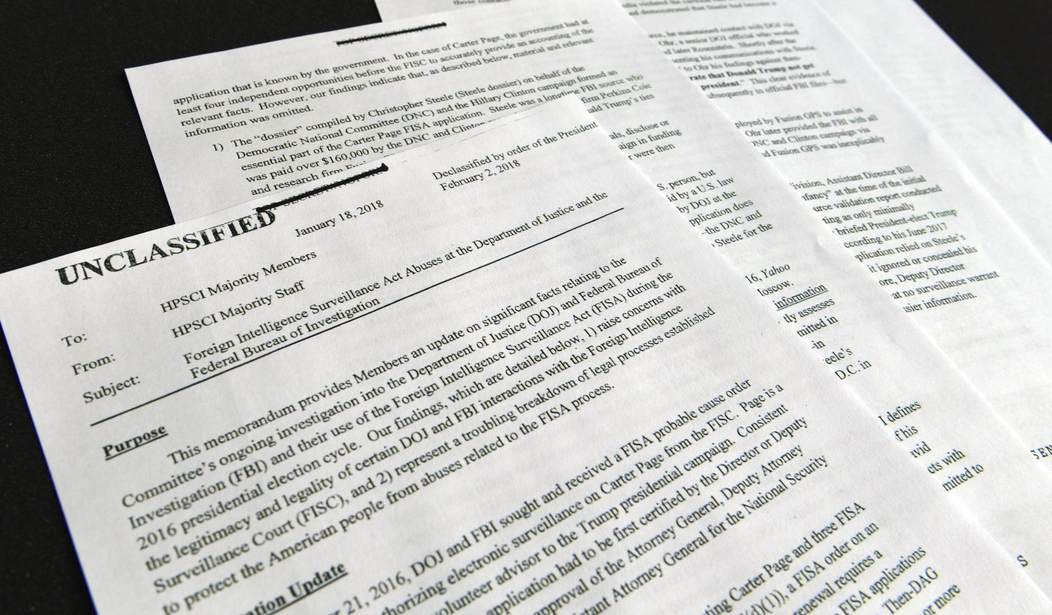One of the NSA’s most valuable allies is Silicon Valley. Under the PRISM program the government can collect data on practically anyone who uses the services of the Internet giants.
PRISM is a code name for a program under which the United States National Security Agency (NSA) collects internet communications from various U.S. internet companies. The program is also known by the SIGAD US-984XN. PRISM collects stored internet communications based on demands made to internet companies such as Google Inc. under Section 702 of the FISA Amendments Act of 2008 to turn over any data that match court-approved search terms. The NSA can use these PRISM requests to target communications that were encrypted when they traveled across the internet backbone, to focus on stored data that telecommunication filtering systems discarded earlier, and to get data that is easier to handle, among other things.
Because of this relationship Silicon Valley itself is the target of numerous foreign intelligence penetration efforts. An attack on Google was described by Salon in 2014. The search giant discovered it was being hacked by China and counterattacked with its own ace developers.
In what Google would later describe as “a highly sophisticated and targeted attack on our corporate infrastructure originating from China,” the thieves were able to get … some of the company’s most important intellectual property, considered among the “crown jewels” of its source code by its engineers … they traced the intrusion back to what they believed was its source — a server in Taiwan where data was sent after it was siphoned off Google’s systems, and that was presumably under the control of hackers in mainland China….
Google uncovered evidence of one of the most extensive and far-reaching campaigns of cyber espionage in U.S. history. Evidence suggested that Chinese hackers had penetrated the systems of nearly three dozen other companies, including technology mainstays such as Symantec, Yahoo, and Adobe, the defense contractor Northrop Grumman, and the equipment maker Juniper Networks.
How the Obama administration reacted to such challenges was clearly illustrated. Washington told Google to shut up. The Salon article continues:
Google shared what it found with the other targeted companies, as well as U.S. law enforcement and intelligence agencies. For the past four years, corporate executives had been quietly pressing government officials to go public with information about Chinese spying, to shame the country into stopping its campaign. But for President Obama or Secretary of State Hillary Clinton to give a speech pointing the finger at China, they needed indisputable evidence that attributed the attacks to sources in China. And looking at what Google had provided it, government analysts were not sure they had it. American officials decided the relationship between the two economic superpowers was too fragile and the risk of conflict too high to go public with what Google knew.
But Google went ahead and accused China anyway. Confronted with a fait accompli the Obama administration saw in Google’s unilateral action a chance to accuse China without soiling its own fingers. “Google had just given the Obama administration an opening to accuse China of espionage without having to make the case itself.”
“It gave us an opportunity to discuss the issues without having to rely on classified sources or sensitive methods” of intelligence gathering, Steinberg says. The administration had had little warning about Google’s decision, and it was at odds with some officials’ reluctance to take the espionage debate public. But now that it was, no one complained.
This don’t-rock-the-boat approach would be eerily repeated in 2016 when Hillary Clinton herself became the target of another country, Russia. The Obama response would be the disturbingly similar to 2014 Google affair: say nothing. The Obama administration had been aware from the first that Russian hackers were attempting to penetrate the DNC and clammed up. An August, 2017 New York Times reported: “Obama White House Knew of Russian Election Hacking, but Delayed Telling”.
The Obama administration feared that acknowledging Russian meddling in the 2016 election would reveal too much about intelligence gathering and be interpreted as “taking sides” in the race, the former secretary of homeland security said Wednesday. “One of the candidates, as you recall, was predicting that the election was going to be ‘rigged’ in some way,” said Jeh Johnson, the former secretary, referring to President Trump’s unsubstantiated accusation before Election Day. “We were concerned that by making the statement we might, in and of itself, be challenging the integrity of the election process itself.”
They apparently saw Russian efforts as so ineffectual or indecisive they could afford to ignore them. Or perhaps they thought that Fusion GPS could pull off a Google. No matter, Hillary Clinton was certainly going to win. “Former U.S. Ambassador to the United Nations Samantha Power hosted all of her fellow female ambassadors to the U.N. at her apartment on election night in 2016 for what she anticipated would be a celebratory evening watching Hillary Clinton win the presidency.” The confidence in Hillary’s victory was apparently shared at the FBI. In August 2016 FBI agent Peter Strzok the challenged his superior’s assumption that Trump would surely lose.
Mr. Strzok wrote, “I want to believe the path you threw out for consideration in Andy’s office—that there’s no way he gets elected—but I’m afraid we can’t take that risk. It’s like an insurance policy in the unlikely event you die before you’re 40…”
The text came after a meeting involving Ms. Page, Mr. Strzok and FBI Deputy Director Andrew McCabe, according to people close to the pair and familiar with their version of events. At the meeting, Ms. Page suggested they could take their time investigating the alleged collusion because Mrs. Clinton was likely to win, the people said.
If they move more deliberately, she argued, they could reduce the risk of burning sensitive sources.
But they were the chiefs and he was an indian. Part of Obama’s management style was the willingness to remain passive in the face of a what others regarded as a threat. ABC news describes how Obama officials dismissed his characterization of ISIS as a Jayvee team by saying “it was not specifically about ISIS but about various extremist groups”. Bob Woodward noted his curious attitude towards terror attacks. “‘We can absorb a terrorist attack. We’ll do everything we can to prevent it, but even a 9/11, even the biggest attack ever . . . we absorbed it and we are stronger.”
That was who he was.
Time and again the Obama administration adopted a don’t rock the boat approach unless it could find someone else to take the lead as an accuser. The one undeniable thing about the collusion crime, if crime there was, is that the Obama administration not only failed to prevent it, but chose not to act. If the FBI truly believed Trump was a Russian agent with a chance of becoming President of the United States stopping him would be worth the exposure of almost any number of intelligence assets.
Now law enforcement is embarked on an investigation which if successful would nullify an election with incalculable results. To paraphrase Jeh Johnson they are now doing what they didn’t want to do. ‘By making the statement of collusion we are, in and of itself, now challenging the integrity of the election process itself.’ Even taken on its own terms the Mueller investigation is an attempt to push the the toothpaste back into the tube after the last administration had allowed it to be pressed out.
Follow Wretchard on Twitter
For a list of books most frequently purchased by readers, visit my homepage.
Support the Belmont Club by purchasing from Amazon through the links below.
Books:
The Road Not Taken: Edward Lansdale and the American Tragedy in Vietnam, In this book, bestselling historian Max Boot chronicles the life of legendary CIA operative Edward Lansdale and reframes our understanding of the Vietnam War. Lansdale pioneered a “hearts and minds” diplomacy, first in the Philippines, then in Vietnam, a visionary policy that was ultimately crushed by America’s giant military bureaucracy. With interviews and newly available documents, Boot rescues Lansdale from historical ignominy and suggests that Vietnam could have been different had we only listened.
The Case for Christ: A Journalist’s Personal Investigation of the Evidence for Jesus, Retracing his own spiritual journey from atheism to faith, author Lee Strobel, former legal editor of the Chicago Tribune, cross-examines a dozen experts who are recognized authorities in their own fields. He challenges them with questions like, How reliable is the New Testament? Does evidence for Jesus exist outside the Bible? Is there any reason to believe the resurrection was an actual event? The book reads like a captivating, fast-paced novel but it’s not fiction. It’s a riveting quest for the truth about history’s most compelling figure.
Ghost Soldiers: The Epic Account of World War II’s Greatest Rescue Mission, by Hampton Sides. On January 28, 1945, 121 hand-selected U.S. troops slipped behind enemy lines in the Philippines. Their mission: March 30 rugged miles to rescue 513 POWs languishing in a hellish camp, among them the last survivors of the infamous Bataan Death March. This book vividly re-creates this daring raid, offering a minute-by-minute narration that unfolds alongside intimate portraits of the prisoners and their lives in the camp.
The Square and the Tower: Networks and Power, from the Freemasons to Facebook, by Niall Ferguson. The 21st century has been hailed as the Networked Age. But in this book, Ferguson argues that social networks are nothing new. From the printers and preachers who made the Reformation to the freemasons who led the American Revolution, it was the networkers who disrupted the old order of popes and kings. Far from being novel, our era is the Second Networked Age, with the computer in the role of the printing press. Once we understand this, both the past and the future start to look very different indeed. Ferguson offers a whole new way of imagining the world.
For a list of books most frequently purchased by readers, visit my homepage.
Did you know that you can purchase some of these books and pamphlets by Richard Fernandez and share them with your friends? They will receive a link in their email and it will automatically give them access to a Kindle reader on their smartphone, computer or even as a web-readable document.
The War of the Words, Understanding the crisis of the early 21st century in terms of information corruption in the financial, security and political spheres
Rebranding Christianity, or why the truth shall make you free
The Three Conjectures, reflections on terrorism and the nuclear age
Storming the Castle, why government should get small
No Way In at Amazon Kindle. Fiction. A flight into peril, flashbacks to underground action.
Storm Over the South China Sea, how China is restarting history in the Pacific
Tip Jar or Subscribe or Unsubscribe to the Belmont Club










Join the conversation as a VIP Member